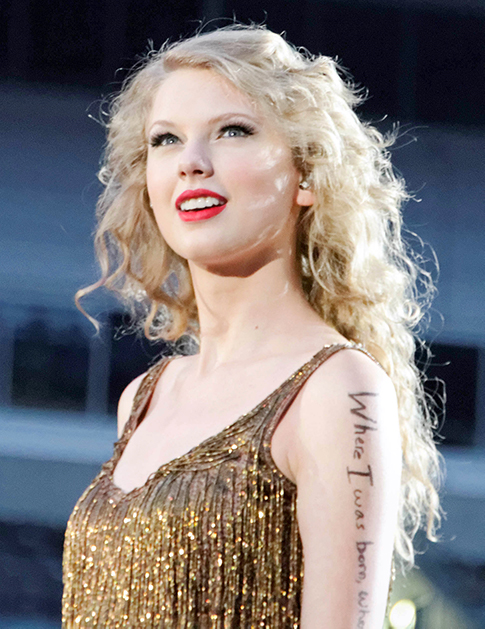Look What You Made Her Do: Taylor Swift Brings Her Own Lawsuit Against Evermore Park

In December 2020, Taylor Swift released her ninth studio album, Evermore. The album came as somewhat of a surprise, following the release of her eighth album, Folklore, by only 5 months. Evermore sold over 1 million copies in its first week, helped propel Swift to being the most streamed artist on Apple Music in 2020, and was met with critical success. It was also met with a lawsuit.
On February 2, 2021, Evermore Park, LLC sued Taylor Swift in the U.S. District Court for the District of Utah. In its Complaint, Evermore Park alleged that Evermore infringes several EVERMORE trademarks that Evermore Park has owned since 2015. Evermore Park also sued TAS Rights Management, LLC (“TAS”), the entity that owns and manages Taylor Swift’s intellectual property rights, and Taylor Nation, LLC, the entity that operates Swift’s websites among other things.
Evermore Park is an “ancient township” built “upon a body of mysterious energy” that opened in 2018. According to its website, doorways to other lands, worlds and dimensional planes once open at Evermore Park were sealed for centuries until keys to unlocking the magic of these gateways were rediscovered and the portals were unsealed. Now guests can experience the magic emanating from the portals at the Park’s Axe Throwing Field, Elven Archery Range, or Crooked Lantern Tavern.
Like many theme parks, Evermore Park sells merchandise at the Park and through its online store, such as bags, t-shirts, and ornaments. Evermore Park also has live musical performances at the park and plays songs upon request, including Taylor Swift’s songs. Evermore Park owns several trademarks for EVERMORE for use on these goods and services, namely several types of apparel and “live visual and audio performances by an actor.” Evermore Park is alleging that Taylor Swift is already marketing Evermore merchandise that infringes its trademarks and is likely to begin offering “live visual and audio performances,” presumably in the form of concerts or a tour, using the EVERMORE trademark.
In addition, Evermore Park claims that because it has created two original music scores Evermore Park Vol. 1 and Evermore Park Vol. 2, Swift’s Evermore album itself is likely to cause confusion in the marketplace. Evermore Park claims that Swift’s alleged infringement is causing it irreparable harm, and has filed a Motion for Preliminary Injunction, seeking to stop Swift’s sale of Evermore merchandise or offering “live entertainment services” under the Evermore brand during the pendency of the case.
Swift’s team has not responded to Evermore Park’s Complaint or Motion for Preliminary Injunction. But in a letter exchanged before Evermore Park filed the Complaint, Swift’s attorneys made clear that “there is no basis” for Evermore Park’s claims of trademark infringement. And, if anything, rather than causing harm, the Evermore album has created marketing opportunities for Evermore Park. Curiously, the Park confirmed this in its Complaint, noting that it experienced a 330% increase in traffic to its website in the days following the release of Evermore. Swift’s counsel ended the letter warning that “the asserted claims are frivolous and irresponsible and, if pursued further, will be defended vigorously.”
As they say, the most vigorous defense is a good offense. Taylor Swift, through TAS, filed her own Complaint in the U.S. District Court for the Middle District of Tennessee on February 22, 2021. TAS alleges that Evermore Park has infringed several of Swift’s copyright protected works, including some of her most well-known songs: Bad Blood, You Belong With Me, and Love Story.
According to TAS, Broadcast Music, Inc. (“BMI”) protects and enforces Swift’s rights in the songs and has been attempting to get Evermore Park to license the music since at least August 2019. Despite repeated follow ups, Evermore Park “blatantly ignored” BMI—until TAS threatened to file this lawsuit. The Complaint alleges that once this lawsuit became imminent, Evermore Park contacted BMI to request a retroactive license for live performances of Swift’s songs from 2018 to present. However, Evermore Park is not out the woods yet. TAS alleges that by seeking the retroactive license, Evermore was trying to cover its tracks and has all but admitted infringement in the process.







